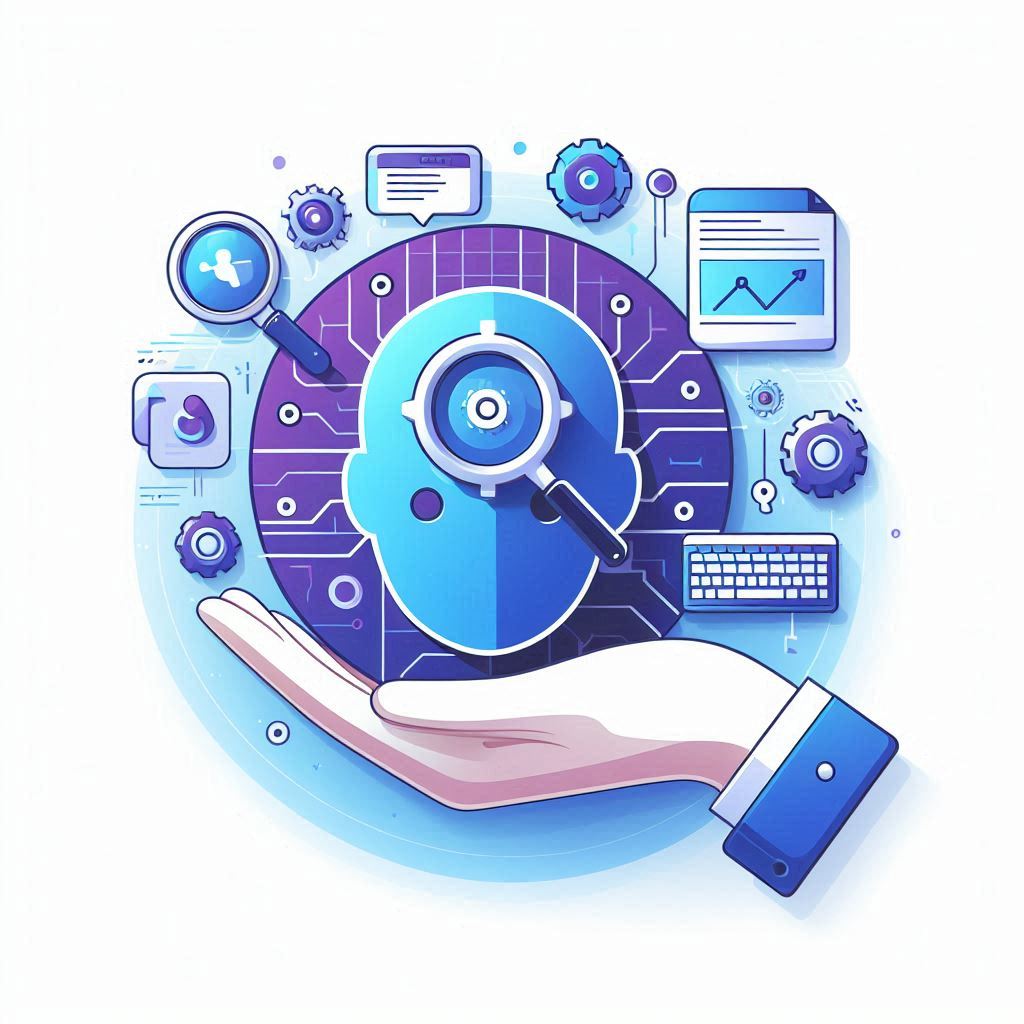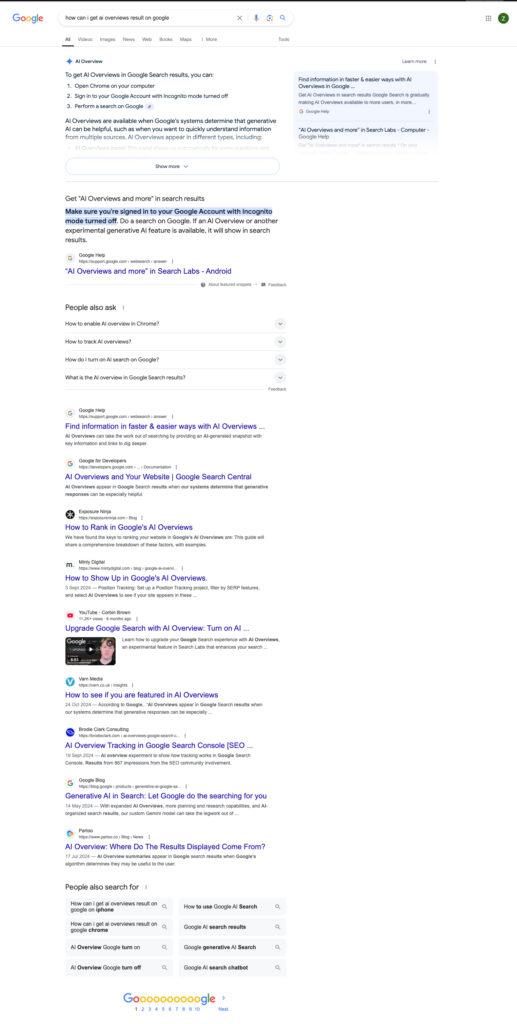How Is AI Impacting Your SEO, But Don’t Panic
AI, AI agent, ChatGPT, SEO
More People Are Using AI to Search for Information
Do you get the feeling that people are increasingly turning to generative AI engines like ChatGPT for information, rather than relying solely on traditional search engines like Google? You may be right.
A recent study by UK marketing consultancy ClickPop revealed a surprising trend: 65.3% of respondents preferred websites suggested by ChatGPT, while only 34.7% preferred those from Google. This preference was particularly evident in local search, where ChatGPT garnered 61.1% of the votes compared to Google’s 38.9%.
As David Richter, the founder of ClickPop, stated: “The threat to Google posed by ChatGPT, and AI more generally, is already a reality, not just a future possibility.”
However, Google wasn’t going to stand idly by. In May 2024, they unveiled their own Large Language Model, Bard (now known as Gemini). Additionally, they launched AI Overview, an enhanced search feature.
AI Overviews provide more detailed information than traditional featured snippets. They appear at the top of search results, offering clear and accurate answers in concise formats or longer, step-by-step guides with supporting videos. These overviews are powered by advanced AI that delves into vast amounts of web data to provide comprehensive and contextually relevant responses to user queries.
Unlike traditional search engines that rely on keyword matching, AI Overviews understand the nuances of user queries. This enables them to answer complex questions with detailed reasoning and analysis. Moreover, they continuously learn from user interactions to improve future responses.
By positioning AI Overviews prominently at the top of search engine results pages (SERPs), Google effectively pushes other organic listings, featured snippets, map packs, and even paid ads further down the page. This strategic move highlights the increasing importance of AI in shaping the future of search and the potential impact on traditional SEO strategies.

The Impact of AI on SEO
But in terms of SEO, how is generative AI impacting website traffic?
Overall searches will grow but organic traffic will suffer
The short answer is that organic, direct, referral, and affiliate traffic will decline, while overall searches will increase. However, this increased search volume won’t necessarily translate to more organic traffic for websites. In fact, AI is leading to a significant decrease in organic traffic, with some experts reporting drops of 18-64%.
AI-powered search results are driving a 60% decrease in average click-through rates (CTR) and a 30% reduction in organic traffic. This impact is widespread, affecting every website, regardless of its size or niche.
Less content will be indexed
As AI-generated content proliferates, Google is struggling to keep up with indexing. This means that generic and less valuable content is less likely to be indexed. To ensure your content stands out, focus on creating high-quality, original content that offers unique insights and perspectives.
CTR for informational queries is going down
Some websites experienced a significant 71% decrease in rankings for informational queries during the first quarter of 2024. This decline primarily affected pages such as listicles, category pages, glossaries, and top-of-funnel educational content.
To mitigate this impact, consider shifting your focus towards transactional and navigational content. As Google’s AI-powered search continues to evolve, it’s increasingly taking over the role of answering informational queries.
High search volume, high volatility in ranking
As people become more accustomed to AI, their search behavior will evolve. The rise of AI is expected to drive an increase in search volume, which in turn can lead to greater volatility in search engine rankings.
Top 10 organic search results aren’t as useful now
AI Overviews are positioned at the top of search engine results pages (SERPs), often occupying significant space. This can push organic results further down the page, reducing visibility and click-through rates for traditional search results.
Lower CPC for Google Ads
Google Ads are often positioned above AI Overviews, increasing the available inventory for paid ads. This can potentially lead to lower costs-per-click (CPC) for advertisers. As a result, SEO marketers may want to consider leveraging PPC campaigns to capitalize on opportunities where organic traffic may be declining.
Fewer leads but better quality
While the overall traffic to your website may decrease, the quality of that traffic is likely to improve. Google’s AI-powered search is designed to provide more accurate and relevant search results, often directly answering user queries without the need to click through to a website. However, for those users who do click through, they are likely to be highly qualified leads seeking specific information.
Take advantage of intent labels
By categorizing your search queries into specific intent buckets (e.g., “solutions,” “blogs,” etc.), you can train AI models to recognize patterns and understand the intent behind user searches. This process, known as learned intent, enables you to personalize content to meet the specific needs of your audience, creating a more engaging and relevant user experience.
Conclusion
As generative AI continues to evolve, it’s reshaping the digital landscape and impacting the way we search for information. While AI offers numerous benefits, such as improved search results and personalized experiences, it also presents challenges for traditional SEO strategies. To thrive in this new era, marketers must adapt to the changing landscape by creating high-quality, unique content, leveraging AI tools, and prioritizing user experience. By understanding the impact of AI on search and implementing effective strategies, businesses can maintain a strong online presence and drive sustainable growth.
Read our blog post on how to improve Generative Search Optimization.
Check out our solutions with fully automated AI agents.
Read our latest blog posts:
- How to Boost Operational Efficiency with AI Agents
- Generative AI is Transforming Content Creation for Digital Marketers
- Leverage AI for Hyper-Personalized Marketing Campaigns in 2025
- 5 Ways AI-Driven Decision-Making Leverage Data to Empower Business Leaders
- How are AI Agents Boosting Inbound Marketing